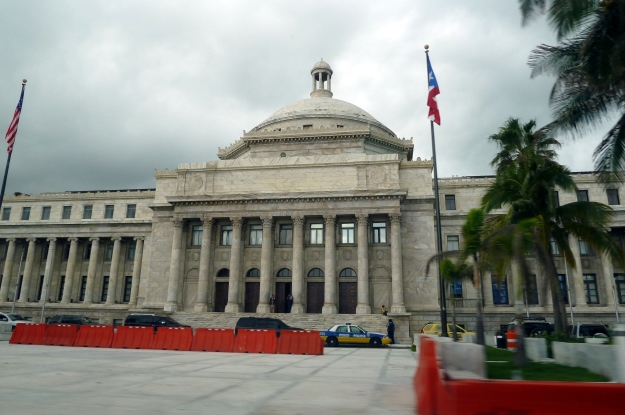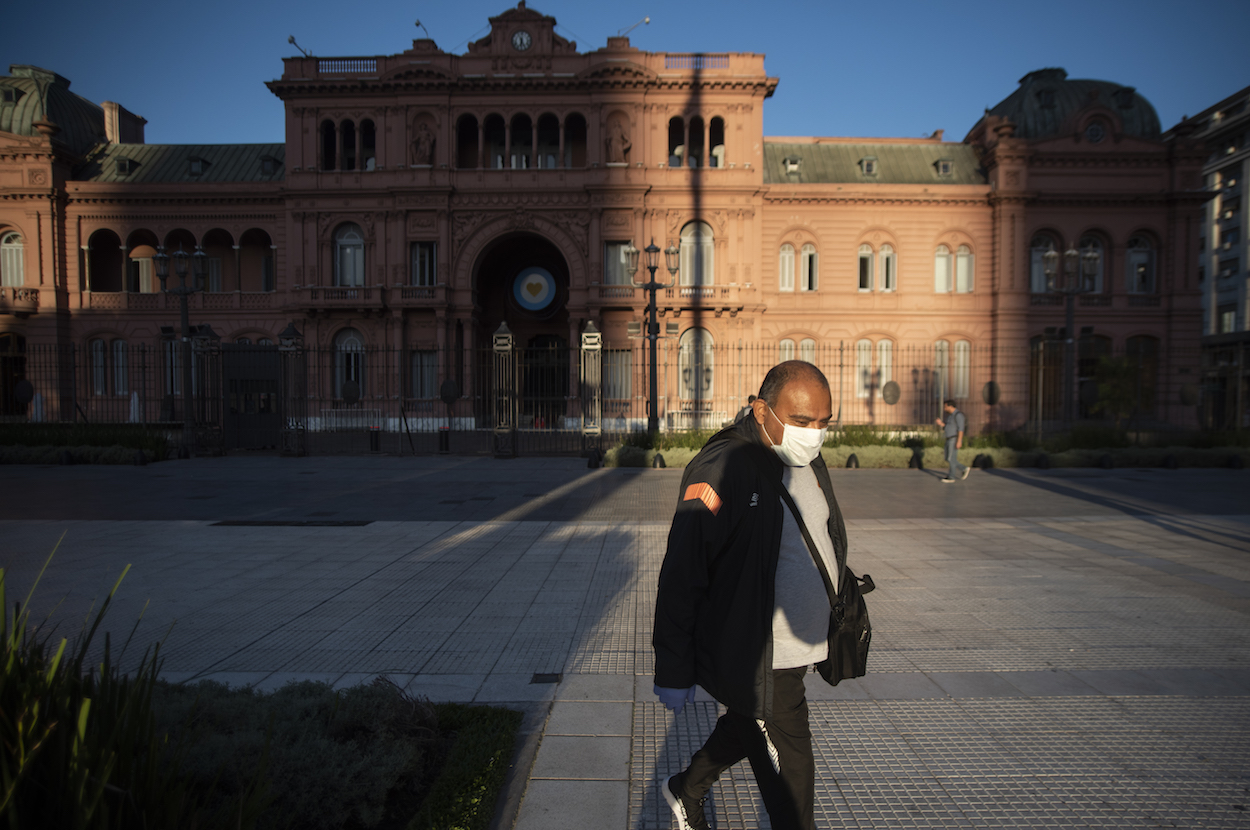Sign up here to get This Week in Latin America delivered to your inbox every Monday.
Missed Payment: Puerto Rico will default on most of a $422 million debt payment due today, the largest missed payment so far in the island’s ongoing debt crisis. Governor Alejandro García Padilla on Sunday announced a moratorium on the debt repayment, citing failed restructuring negotiations and the U.S. Congress’ inability to pass a legislative fix to the island’s financial woes. Congress had for several weeks been debating the possibility of installing a financial control board to manage the island’s over $70 billion debt burden, but House Republicans were unable to garner enough support to pass the legislation. García said the island would not be able to repay its debt without being forced to shut down schools and hospitals.
Commerce in Cuba: The first U.S. cruise ship to travel to Cuba in more than 50 years made port this morning in Havana. The arrival of the Adonia marks another milestone in the ongoing rapprochement between the two countries, but comes on the heels of an April 19 communist party convention and huge May Day parades in which the Castro regime reaffirmed a commitment to its revolutionary roots, disappointing some reform-minded observers. Still, other signs of change abound: Last week, Philip Hammond became the first British foreign secretary to make an official visit to the island since its 1959 revolution, applauding Cuba’s President Raúl Castro in an interview with Reuters for “embracing the realities of the world we live in.”
Anti-Government Fever: Efforts to oust the presidents of Brazil and Venezuela will continue this week. In Brazil, a Senate committee is expected to vote Friday on whether to recommend an impeachment trial against President Dilma Rousseff; afterward, the whole Senate will vote in plenary as soon as May 11 on whether to suspend her and open trial. Meanwhile, in Venezuela, opposition leaders say they will on Tuesday present to electoral authorities a petition for the recall of President Nicolás Maduro with more than 2 million signatures – more than 10 times the minimum needed to initiate a referendum. The country’s electoral authority has suggested the opposition must wait 30 days before validating the signatures, but Maduro’s opponents are under pressure to move quickly in order to force a new election before 2018.
Paraguay Judges: Paraguay is deciding whether to impeach a Supreme Court judge in a case that could lead to a wider purging of the nation’s judicial ranks. Judge Hugo Sosa Pasmor is expected to decide by Thursday whether to accept a case file against Supreme Court Justice Sindulfo Blanco, who is accused of dereliction of duty, corruption and criminal links. The chamber of deputies already voted last year to impeach Blanco, and since April 6 the Senate has been hearing arguments on whether to do the same. Some analysts believe Blanco’s impeachment would lead to the ouster of other Supreme Court judges who are also facing impeachment, and there is concern that a purge could provide major political parties with an opportunity to fill open positions with their allies.
Economy in Brief
Mexico’s Senate named a new independent adviser to state-run oil company Pemex.
The national bank of Panama is considering opening a branch in New York, as the country works to improve its financial transparency practices.
The IMF expects Nicaragua’s GDP to grow 4.5 percent in 2016; its five-year average growth rate is among the highest in the region.






